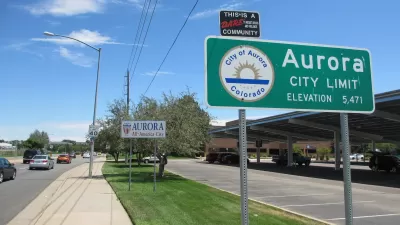Timothy Egan describes growing American ethnoburbs, or "entire cities" (or suburbs) "dominated by a nonwhite ethnic group," and their implications for politics and power.
The term "ethnoburbs" is credited to a 2009 book by Arizona State University professor Wei Li. Egan says these fast-growing cities "are suburban in look, but urban in political, culinary and educational values, attracting immigrants with advanced degrees and ready business skills."
To Egan, ethnoburbs represent a new trend in the geography of cultural diversity. Immigrants used to head straight for a big city's Chinatown or Little Italy. These days, the fastest growing clusters of ethnic groups are in suburban cities that are increasingly nonwhite - Bellevue, WA; Quincy, MA; Monterey Park and Riverside County, CA.
Egan sees major implications for political power balances. Asians and Latinos are significantly underrepresented in Congress, relative to American demographics as a whole, and he believes that ethnoburbs will help to change that.
"As a general rule, I don't think it's good for any democracy to see itself, much less vote, strictly along ethnic lines," he writes. But ethnoburbs "should mean that Asians and Latinos, the dynamo forces of virtually every fast-growing Western state, will get their seat at the political table, at least in California. And since nearly one in eight members of Congress come from this state, Congress should soon look more like the new America."
FULL STORY: Rise of the Ethnoburbs

Planetizen Federal Action Tracker
A weekly monitor of how Trump’s orders and actions are impacting planners and planning in America.

San Francisco's School District Spent $105M To Build Affordable Housing for Teachers — And That's Just the Beginning
SFUSD joins a growing list of school districts using their land holdings to address housing affordability challenges faced by their own employees.

The Tiny, Adorable $7,000 Car Turning Japan Onto EVs
The single seat Mibot charges from a regular plug as quickly as an iPad, and is about half the price of an average EV.

Trump Approves Futuristic Automated Texas-Mexico Cargo Corridor
The project could remove tens of thousands of commercial trucks from roadways.

Austin's First Single Stair Apartment Building is Officially Underway
Eliminating the requirement for two staircases in multi-story residential buildings lets developers use smaller lots and more flexible designs to create denser housing.

Atlanta Bus System Redesign Will Nearly Triple Access
MARTA's Next Gen Bus Network will retool over 100 bus routes, expand frequent service.
Urban Design for Planners 1: Software Tools
This six-course series explores essential urban design concepts using open source software and equips planners with the tools they need to participate fully in the urban design process.
Planning for Universal Design
Learn the tools for implementing Universal Design in planning regulations.
Smith Gee Studio
City of Charlotte
City of Camden Redevelopment Agency
City of Astoria
Transportation Research & Education Center (TREC) at Portland State University
US High Speed Rail Association
City of Camden Redevelopment Agency
Municipality of Princeton (NJ)





























